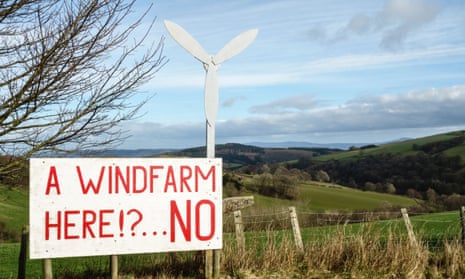The UK has dropped out of the top ten of a respected international league table on renewable energy for the first time since it began 12 years ago.
In its quarterly report published on Wednesday, EY said the new Conservative government had sentenced the renewable energy industry to “death by a thousand cuts” and investor confidence in the sector had collapsed because of policy changes over the summer.
An EY energy analyst said that “investors are scratching their heads” to understand the government’s policy changes in recent months, putting at risk the UK’s reputation as a “safe harbour” for investment. When the last rankings were published in June, the UK was sat in 8th place, but it has now dropped to 11th.
Some environmentalists have described the period since the election of the Conservative government in May as the worst for environmental policy in decades.
The report cites the early end of subsidies for onshore wind power and large scale solar projects alongside major changes to the climate change levy as the reasons for the loss of confidence. The government has said the changes are necessary to cut the cost of energy for consumers.
Ben Warren, energy corporate finance leader at EY, told the Guardian: “The UK has historically been a safe harbour for investment because of political stability and all sorts of other good reasons. We’ve entered a really weird phase where we’ve almost got government energy policy being set in a vacuum.
“From 2000 to 2003 we went through some very significant reforms; the government at the time was a huge buyer of evidence to support the UK energy market in the long-term. Now we seem to be having very reactionary policies being made almost in isolation of any evidence.”
He added that it is “not very normal” for a country to drop by three places in a single quarter.
EY’s Renewable Energy Country Attractiveness Index scores 40 countries for their attractiveness to renewable investors, based on an analysis of a wide-ranging factors from government policy, specific projects and climate change targets, energy demand and costs to wider economic factors such as growth and sovereign credit risk.
Maf Smith, deputy chief executive of the trade body RenewablesUK, said: “The biggest worry for investors is that of an investment hiatus. Industry is ahead of government in the need to protect the consumer while keeping the lights on and tackling climate change. Without long term clarity, projects will be delayed, investment will go elsewhere and consumer savings will be lost.”
The report warns that the changes are also likely to have a knock-on effect on other parts of the energy sector such as nuclear, shale gas and carbon capture and storage (CCS).
Warren said: “Investors looking at the UK are scratching their heads. The government is saying on one hand that they’re trying to reduce the cost of energy for working families but on the other hand saying they want to go for shale gas and CCS which are unproven markets, new nuclear build and offshore wind which are substantially more expensive than renewables such as on onshore wind and solar PV. Investors don’t know what the government is trying to achieve.”
Since the analysis was undertaken, the government has blocked a huge £3.5bn offshore windfarm planned off the coast at Bournemouth. Elsewhere, the US took the top spot from China for the first time in a year. The report cites the launch of Barack Obama’s Clean Power Plan – described by some as the country’s strongest ever action on climate change – for sending “a strong message” of a shift to low carbon energy.India pushed Germany out of third place, which analysts put down to state and market reforms in India as well as an increase in foreign investment, and a new auction regime in Germany that is expected to slow deployment in the next few years. Brazil and Chile moved up into 8th and 9th place respectively, following a push to support renewable projects, especially solar.
A spokesperson for the UK’s Department of Energy and Climate Change said: “We’re taking urgent action to address the projected overspend on subsidies for renewables and protect bill payers. Government support has driven down the cost of renewable energy significantly. As costs continue to fall and we move towards sustainable electricity investment, it becomes easier for parts of the renewables industry to survive without subsidies.”

Comments (…)
Sign in or create your Guardian account to join the discussion